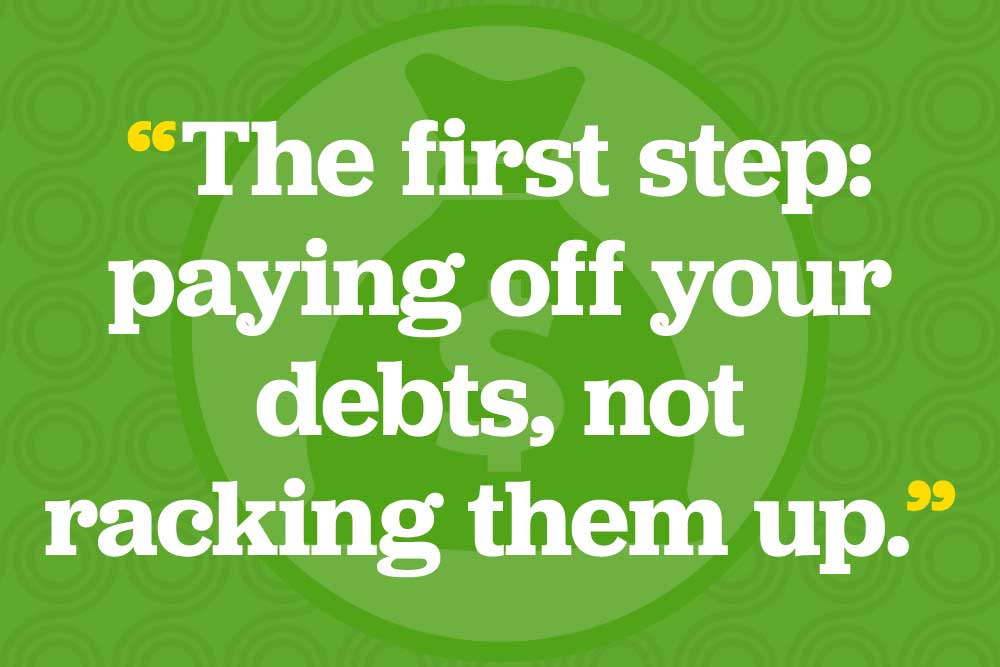When I received my first credit card in my early 20s, I thought it meant I’d hit the big time. I was officially a grown-up, who could buy whatever she wanted. Any purchases I couldn’t afford with cash now went on plastic, and I could pay that “low monthly payment” they touted when the bill came due.
I found out the hard way that paying only the minimum payment each month really piles up your debt — and quickly.
What no one told me about using a credit card, or even the basics of money management for that matter, could (and does) fill books. Apparently, though, as a young person living in the U.S., I was not alone.
At least according to a global study conducted by the Organization for Economic Co-operation and Development in 2014, which surveyed 29,000 students in 18 countries and economies on their financial literacy. American students ranked somewhere in the middle of the pack.
So how can you get your financial learn on?
While I learned a lot of my money savvy the hard way, through trial and error, you don’t have to. In the age of the Internet — where there’s a hack for everything — there’s no reason whatsoever to feel like a financial loser.
Getting prepared is easier than ever before. These six resources can help build your financial muscle.
1. Learn from a credible source
Created by the U.S. Financial Literacy and Education Commission in 2003, MyMoney.gov is a financial education website developed with the sole purpose of educating you (and me!) on how better to save, invest, borrow, protect, and, yes, even spend our hard-earned dollars.
Money quizzes and a massive library of articles on financial topics tied to life stages (including the ones you can’t always plan for) make this a great resource.
2. Get help with budget planning
Wanna be financially independent? The first step: paying off your debts, not racking them up.
LearnVest “helps you break down big money goals into achievable steps.” They do this by providing tools for budget planning, goal setting, integrating your accounts, and even personalized advice and classes.
Signing up is free, as are some of the tools and the wealth of info in their Knowledge Center (everything from how to budget to mortgages and even taxes). Classes and a one-to-one program to put your plan into action have fees — but it is an investment in your financial future.
3. Understand credit scores and lending
Right here on Trulia’s blog, we work hard to help you make sense of home loans, credit scores, and all of the financial intricacies that play into deciding whether to rent or buy. (We even have a calculator to help with that.)
Look for strategies and actionable tidbits, like tips for saving more money each month and inspiration to help you reach greater financial heights this year.
4. Know the industry jargon
Want an encyclopedic knowledge of money matters? Check out Investopedia. This powerhouse learning center lets you educate yourself on everything finance.
Learn the required investment jargon but also real-deal, up-to-the-minute news about investment markets and personal finance. The site connects you to stock advice, free calculators, newsletters, guides, and annual reports all with one click.
5. Implement bill-paying tools
Mint (by Intuit) is free, secure, and favored by finance professionals for its easy-to-use budget and bill-pay tools that allow you to see and track where your money is going each month, all in one handy place.
And with Mint Credit Score, you keep an eye on that important number as you learn and implement new strategies that will assist you in improving it.
6. When in doubt, hack it
Dedicated to helping you “Live large on a small budget,” WiseBread is focused on better personal money management with life hack articles ranging from analyzing your grocery spending to affordable gift lists, as well as other money-saving strategies.
The site also keeps a regularly updated list of the top personal finance blogs under an easy-to-find tab, allowing you to uncover the very best in home money-management tips.
With these six financial education resources and a little bit of effort, you can’t go wrong. Each lets you learn at your own pace or cherry-pick for the issues you’re facing right now.


